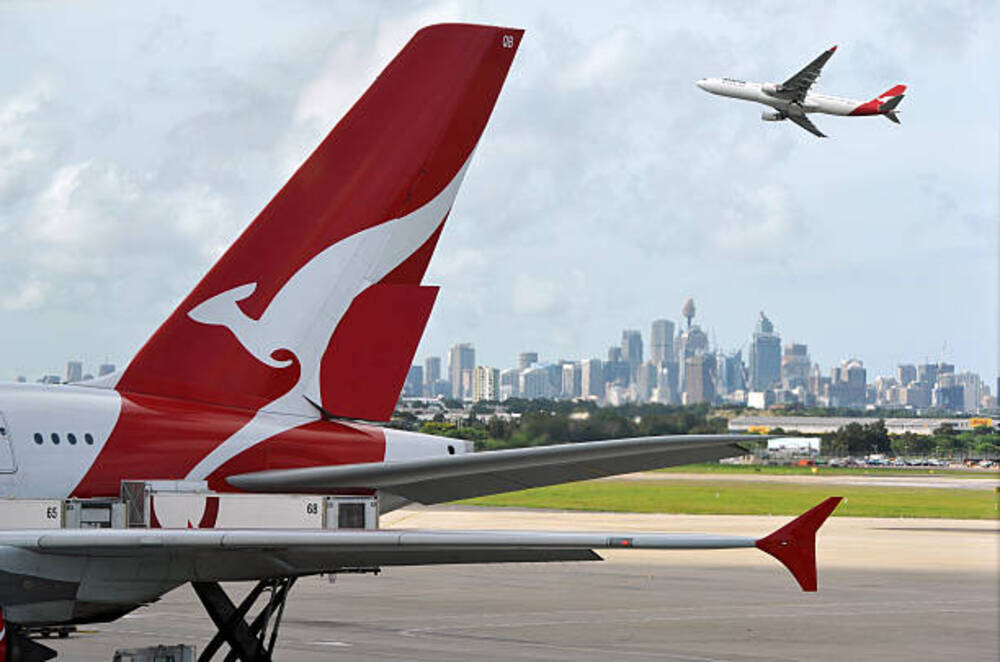Australian airline Qantas Airways Ltd and aircraft manufacturer Airbus SE have announced a joint investment of A$2 million ($1.34 million) to construct a biofuel refinery in Queensland, Australia. The proposed refinery, developed in collaboration with Jet Zero Australia and SAF technology company LanzaJet, will convert agricultural by-products into sustainable aviation fuel (SAF) with the capacity to produce up to 100 million liters per year.
The funds are for a detailed feasibility study and early-stage development of the refinery, with construction set to begin in 2024. The investment is part of Qantas’ goal of incorporating at least 10% of SAF in its fuel mix by 2030, with the airline targeting 60% of its fuel from SAF by 2050 to achieve its net zero emissions target.
What is sustainable aviation fuel?
SAF is a renewable and sustainable biofuel used to power aircraft, made from feedstocks with lower lifecycle emissions than conventional jet fuel. It has similar properties as conventional jet fuel. So there is no need in developing new planes or engines. Also, it can be blended with conventional jet fuel.
SAF can reduce carbon emissions by up to 80%, with the emissions saved throughout the production process due to the feedstocks used to make SAF.
Qantas and Airbus’ $200 million fund
Last year, Qantas Airways Ltd and Airbus SE established a $200 million fund to help meet Qantas’ goal of using at least 10% of sustainable aviation fuel (SAF) in its fuel mix by 2030. The airline has ordered widebody and narrowbody Airbus aircraft for several billion dollars. In reducing the carbon emissions associated with aviation, SAF is a biofuel that allows blending with conventional jet fuel and reduces carbon emissions by up to 80%.
Australia does not have a sustainable aviation fuel sector. Thus, Qantas has been forced to buy supplies of SAF from foreign airports. The investment in the biofuel refinery in Queensland by Qantas and Airbus marks the fund’s first investment. Construction on the refinery, which will generate up to 100 million liters of SAF annually, should begin in 2024. By investing in this refinery, Qantas will help to create a domestic source of SAF, which will assist it in achieving its target of incorporating at least 10% of SAF in its fuel mix by 2030.
Boosting sustainable aviation fuel production with own refinery
With airlines worldwide under increasing pressure to reduce their carbon footprint and reach net zero emissions targets, investment in the development of sustainable aviation fuel has gained momentum. Qantas has committed to reducing its emissions by 50% by 2030 and achieving net zero emissions by 2050. To achieve these goals, the airline has introduced carbon offsetting for all domestic flights and is investing in the development of SAF and zero-emissions aircraft technology.
In addition to Qantas and Airbus, other airlines have also announced initiatives to boost SAF production. United Airlines recently committed to purchasing 1.5 billion gallons of SAF over 20 years, while Delta Air Lines has partnered with Northwest Advanced Bio-Fuels to develop a facility to produce SAF.
The development of a sustainable aviation fuel industry in Australia could bring significant economic benefits, with the potential to create jobs in regional areas and provide a new revenue stream for farmers through the supply of feedstocks. The Queensland refinery could be a step towards unlocking these opportunities, while also helping the aviation industry reduce its carbon footprint.

